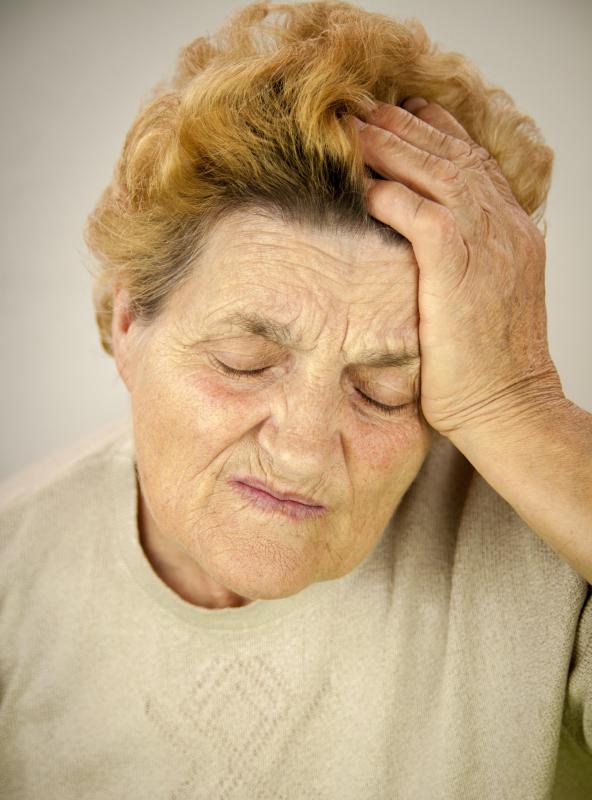At WiseGEEK, we're committed to delivering accurate, trustworthy information. Our expert-authored content is rigorously fact-checked and sourced from credible authorities. Discover how we uphold the highest standards in providing you with reliable knowledge.
What Is Superior Canal Dehiscence Syndrome?
Superior canal dehiscence syndrome, also known as SCDS, is a rare medical condition that affects the inner ear. This generally results from the presence of an abnormal opening in one of the small bones of the ear. Some of the most common symptoms of SCDS include dizziness, increased sensitivity to sound, or ringing in the ears. Treatment usually involves surgical intervention to repair the damage to the ear and alleviate symptoms. Any questions or concerns about superior canal dehiscence syndrome or individualized treatment options should be discussed with a doctor or other medical professional.
The exact cause of superior canal dehiscence syndrome is not always clearly understood, but some cases seem to be present from birth, indicating a possible genetic link. Physical trauma involving the area of the skull near the ear may also contribute to the development of this disorder. In some cases, the development of SCDS is thought to be the result of a slow erosion of the affected bone.

Symptoms of superior canal dehiscence syndrome vary from person to person, resulting in problems that range from mild to severe. Hypersensitivity to a person's own voice is a commonly reported symptom of this disorder. Patients report hearing their own voice or the sound of their breathing as loudly as if it were coming through a loudspeaker. These patients also frequently report an ability to hear other internal bodily noises, such as the heartbeat or sounds made from the digestive process.

Normal, everyday sounds may cause symptoms of motion sickness, such as nausea and a loss of balance in those with SCDS. A profound ringing in the ears or varying degrees of hearing loss may also be present. Headaches, including migraines, have been reported with this disorder, although no direct cause for this type of pain has been found. Minor cases of SCDS may not require medical intervention, although those with more severe symptoms may need to discuss treatment options with a doctor.

Treatment for superior canal dehiscence syndrome almost always involves surgical intervention. The affected bone may be surgically resurfaced, or in some cases, the ear canal may be plugged. The exact procedure depends on the extent of the damage to the inner ear. In most cases, one surgical procedure is sufficient in treating the disorder, although additional surgeries may occasionally be needed. If treated early enough in the course of the disease process, permanent ear damage or hearing loss may be able to be avoided.
AS FEATURED ON:
AS FEATURED ON:















Discuss this Article
Post your comments